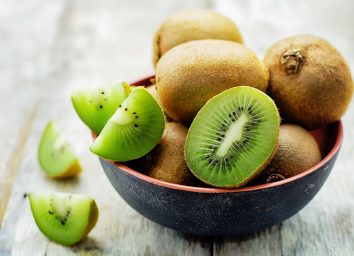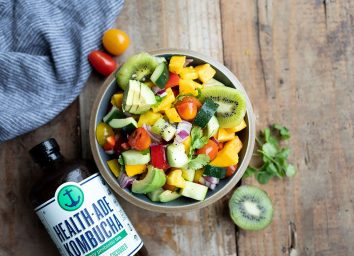What Happens to Your Body When You Eat Kiwi
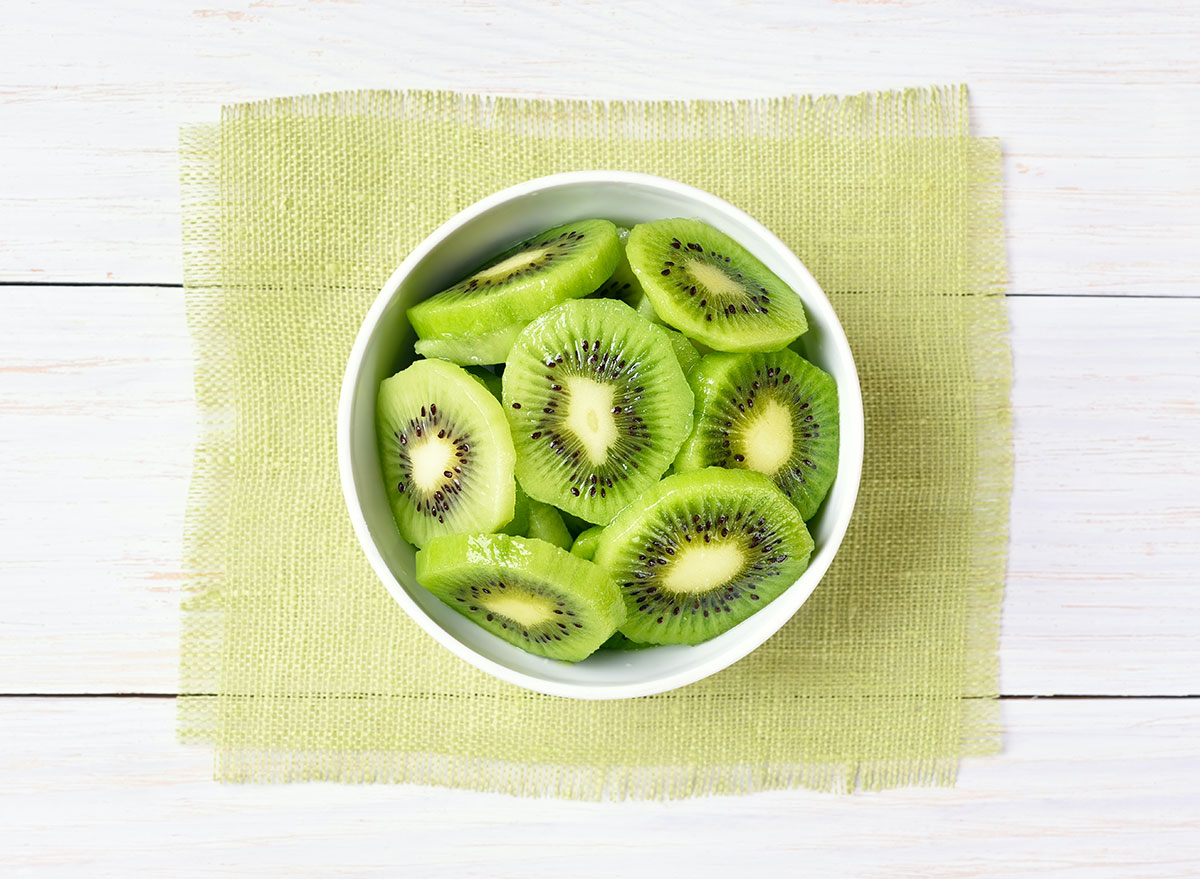
Fuzzy on the outside and neon green on the inside, kiwis are a tropical treat you can enjoy almost any time of year. (Some varieties grow in North America from October through May, while others are in season from late spring into fall.) These unique-looking oval fruits add bright color and tangy flavor to salads, smoothies, desserts, and more.
Kiwis are clearly a healthy food. After all, they're loaded with fiber, folate, and vitamins C and E. And no matter what anybody told you on the grade school playground, their white center isn't toxic. But what happens when you eat kiwi regularly?
We explored the science of how kiwis affect your body, so you'll have all the details. And for more healthy diet choices, don't miss the 7 Healthiest Foods to Eat Right Now.
You'll boost heart health.
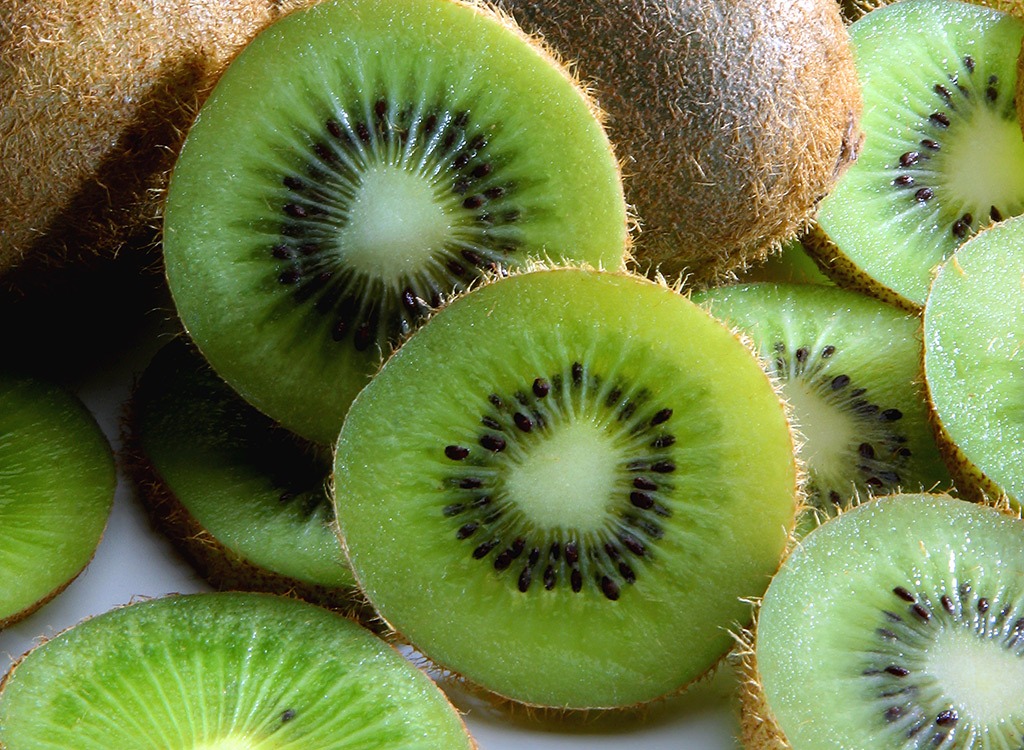
We've all heard that eating too much sodium isn't great for heart health, but the balance of sodium and potassium (rather than just overdoing it with the salt shaker) often paints a broader picture of heart disease risk.
"Sodium and potassium work together when consumed in appropriate amounts to support water balance, heart rate, blood pressure, cell hygiene, and muscle health," says dietitian Lauren Minchen, MPH, RDN, CDN, nutrition consultant for Freshbit, an AI-driven visual diet app.
Because kiwi is rich in potassium—and contains almost no sodium—it's an excellent food for your ticker.
"Prioritizing potassium-rich foods like kiwis can help boost potassium, which offsets sodium's negative effects on blood pressure, heart rate, and water balance," Minchen says.
Plus, kiwis are moderately high in fiber, with just over 2 grams per fruit, adding to their heart health punch. Research shows that high-fiber diets are associated with a lower risk of cardiovascular disease—and they can even help you lose weight.
Along with kiwis, here are 21 High Potassium Foods That Keep Your Muscles Healthy and Strong.
You'll enhance your digestion.
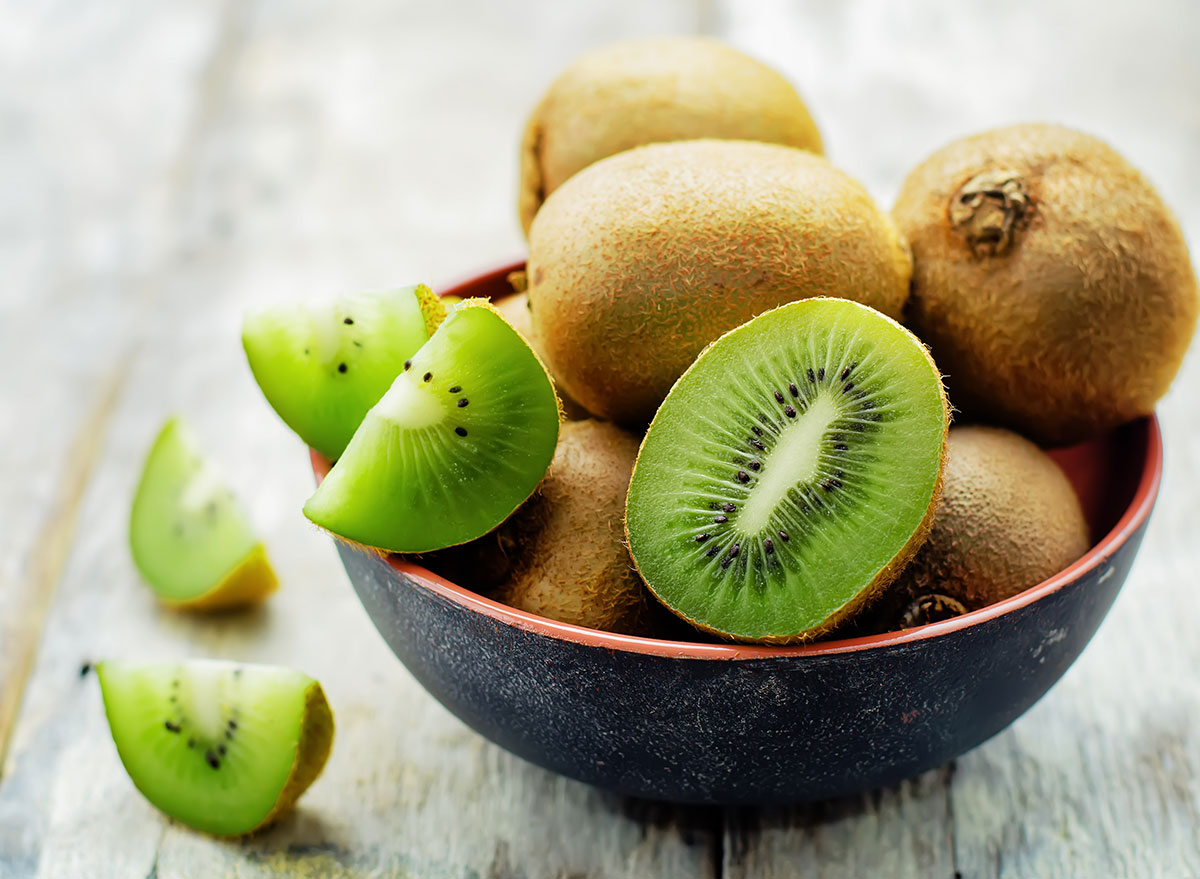
If we're talking fiber, we've got to discuss digestion. Including plenty of fiber in your diet has proven benefits for decreasing constipation and diarrhea and cultivating a healthy microbiome. But kiwi's digestive merits don't stop there. A 2010 study found that an enzyme in kiwi called actinidin specifically helped break down protein in the digestive tract.
For more ways to boost fiber, check out our list of 20 Easy Ways to Add Fiber to Your Diet.
You'll promote better vision.
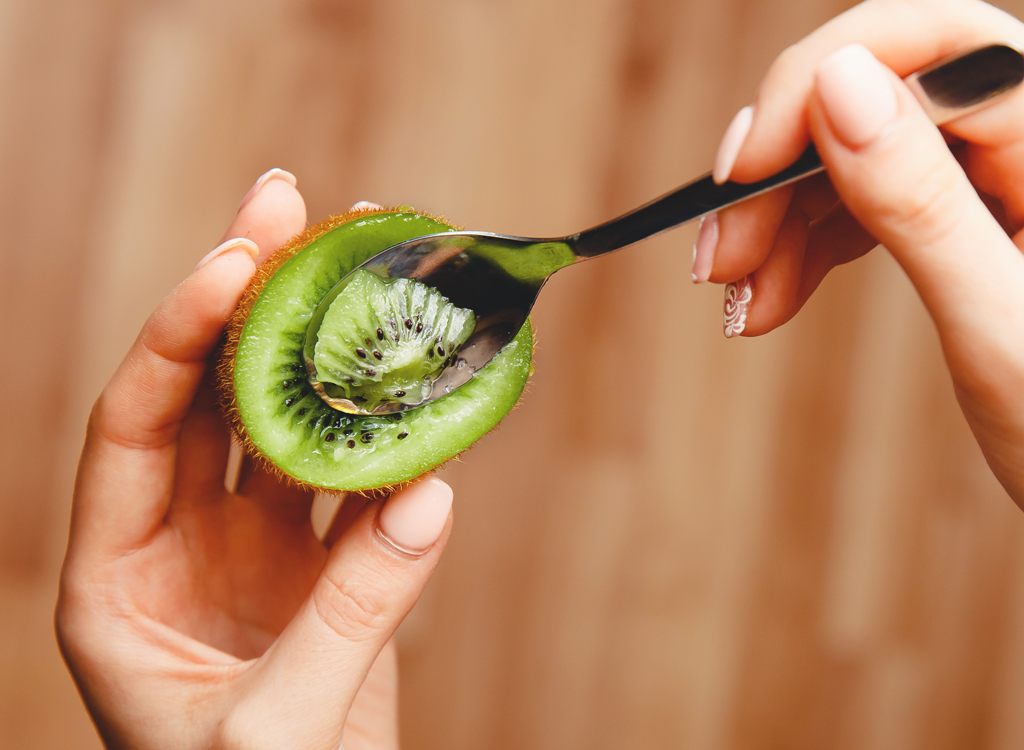
Kiwis are rich in two antioxidants that you may never have heard of—lutein and zeaxanthin—but they have an important role to play in ocular health. These carotenoid compounds are the only type that accumulates in the retina. There, they protect against eye damage by keeping cells clean of damaging free radicals. The result: a possible slowing of the formation of cataracts and macular degeneration. To give your eyes a boost, Minchen recommends a salad of leafy greens, tomato, sunflower seeds, and kiwi with balsamic vinaigrette.
You could ward off iron deficiency anemia.

Move over, oranges! Kiwis are their own vitamin C powerhouse with 56 milligrams per fruit. That's 62% of the recommended daily intake (RDI) for men and 75% for women.
Getting plenty of vitamin C in your daily diet can help keep anemia at bay, as it enhances your body's absorption of iron.
"Kiwis can help boost iron absorption when paired with iron-rich foods, which can help combat iron-deficiency anemia, as part of an iron-rich diet," Minchen says.
Here's What Taking Vitamin C Every Day Does to Your Body.
You might lose weight.
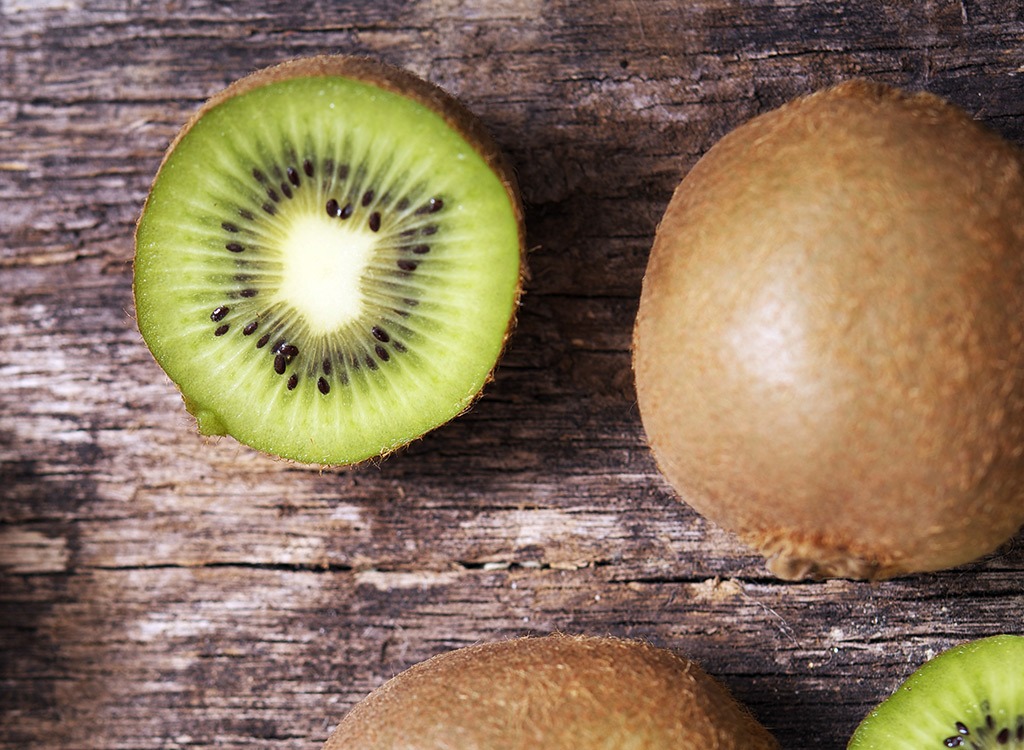
A single kiwi fruit contains only 44 calories—an itty-bitty amount compared to lots of other sweet snacks. Replacing higher-calorie foods with a juicy green kiwi (or two!) could certainly cut back on your daily calorie intake, leading to weight loss. In fact, a 2018 study (which, granted, was funded by a large kiwifruit marketer, Zespri International), found that people who ate two kiwis per day for 12 weeks significantly reduced their waist circumference and waist-to-hip ratio.
You'll keep steady blood sugar.

Are you familiar with the glycemic index? This ranking system explains how much certain foods raise your blood sugar on a scale of zero to 100. With a score of about 50, kiwi fall in the low range for fruits. This is a major positive, especially for people with diabetes, according to Minchen.
"Eating low glycemic foods is particularly helpful for diabetics because it means that these foods can help to support natural management of blood sugar," she says. "Low glycemic foods don't cause an extreme spike in blood sugar, so you don't need as much insulin in your bloodstream to manage the surge after meals."
When you're craving something sweet—but don't want to worry about the ups and downs of a glucose rollercoaster—try a smoothie of kiwi, Greek yogurt, macadamia nut milk, and a sprinkle of coconut. And for more inspiration, take a look at the 50 Best Foods for Diabetics.
You might increase your risk of kidney stones.

For some folks, eating lots of kiwi might not be the equivalent of a culinary tropical vacation. In fact, for one health condition in particular, a fruit salad of these bright green fruits could lead to an experience that's downright unpleasant. Kiwis are high in oxalate, a naturally occurring plant compound that can increase your risk of kidney stones. If you're prone to these painful-to-pass stones, it's smart to cut back on high-oxalate foods—so put kiwi on your list of "sometimes" foods.
Get even more healthy tips straight to your inbox by signing up for our newsletter!
